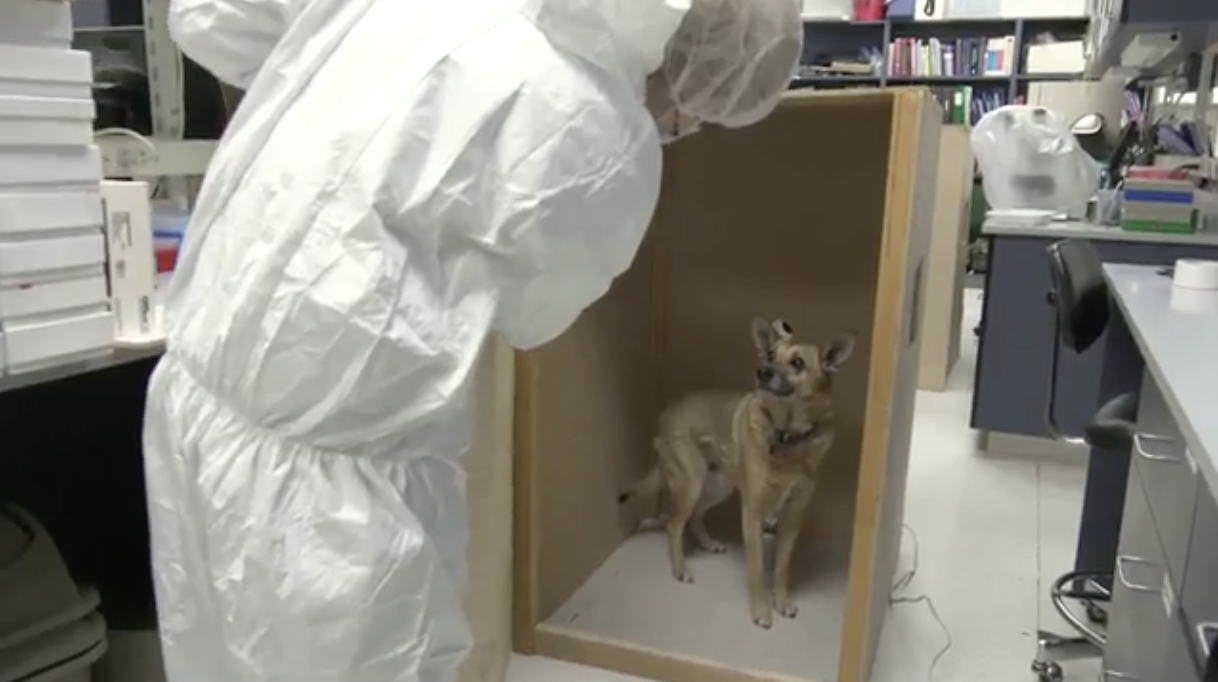Ticks carry nasty diseases like lyme disease and the bacteria causing the deadly disease Rocky Mountain spotted fever, with variants of this disease found all over the world, including the Mediterranean and Middle East.
As the world warms from climate change, researchers find that the ticks that normally feed on dogs, actually prefer humans, when temperatures rise. This is sign that climate change could expand and intensify human disease risks, according to a new study out of the University of California, Davis School of Veterinary Medicine.
“Our work indicates that when the weather gets hot, we should be much more vigilant for infections of Rocky Mountain spotted fever in humans,” said veterinarian Laura Backus, who led the study: “We found that when temperatures rose from about 74 to 100 degrees Fahrenheit, brown dog ticks that carry the disease were 2.5 times more likely to prefer humans over dogs.”
Cases of Rocky Mountain spotted fever and related diseases, collectively known as spotted fever rickettsiosis, have risen dramatically over the last 20 years.
Rickettsia conorii, a variant of the disease, is responsible for Mediterranean spotted fever in the Middle East and parts of Africa and Europe, including in Tunisia, Libya, Israel, Sardinia-Italy, Portugal and Algeria.
The brown dog tick which goes by a Latin name Rhipicephalus sanguineus is the main vector for R. conorii, which is responsible for Mediterranean spotted fever in the Middle East.
In addition to ticks, rickettsiae diseases can also be transmitted by fleas.
Spotted fever rickettsiosis is treatable with antibiotics if detected in the first week of infection, but once an infection takes hold, the fatality rate for spotted fever rickettsiosis victims can exceed 20%. Complications can include damaged blood vessels; inflammation of the heart, lungs or brain; and kidney failure. And we thought Covid was bad?
Backus said there have been indications from earlier work that brown dog ticks, which are found throughout the world, may be more aggressive toward humans in hot weather.
And scientists warn that climate change is greatly expanding areas of the country experiencing multiple days when temperatures top 100 degrees Fahrenheit, or about 38 degrees Celsius. Backus and her colleagues at UC-Davis wanted to gain more definitive insights into how rising temperatures might elevate the risk of tick-borne infections.
Girl grad student in a box

For their experiment, they constructed two large wooden boxes measuring about 3 feet tall and 2 feet wide, which were then connected to each other by a clear plastic tube. They conducted a series of tests that involved putting a human in one box, a dog in the other and ticks in the clear plastic tube between them.

The researchers then observed, over 20-minute intervals, whether the ticks, which seek out hosts to feed on based on smell, preferred dogs or grad student humans –first at temperatures of around 74 degrees Fahrenheit (23.3 degrees Celsius) and then at 100 degrees Fahrenheit (37.8 degrees Celsius).
Backus said that at the higher temperature, one type of brown dog tick, known as the tropical lineage tick, was especially decisive in shifting its preferences from dogs to humans.
“We believe that this decreased preference for dogs–combined with a slight increase in preference for humans–suggests that hot temperatures may also elevate risks of Rocky Mountain spotted fever in areas where the temperate ticks are more common,” Backus said.
Does climate change worry you? Some things you can do today:

The most sustainable clothes are the ones in your wardrobe via @J_creativestudio
- Buy less
- Try low-impact travel and lifestyle. The Moneyless Man is an extreme
- Switch to renewables and solar power in your home/work
- Work for companies that lessen harm, or help your company evolve. See Estee Lauder going climate neutral




